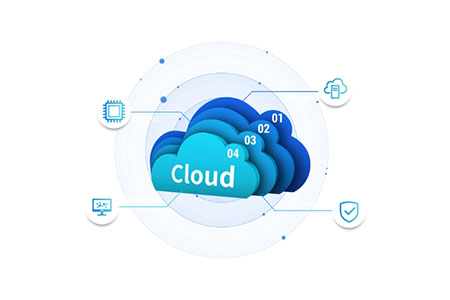Choosing a cloud server is an important decision for enterprises in the process of digital transformation and business expansion. The right choice of cloud server services can provide businesses with flexibility, scalability, security, and cost-effectiveness. Here are some key issues that enterprises need to pay attention to when choosing cloud servers:
1. Performance and scale:
Computing performance: Ensure that the cloud server provides sufficient computing resources to meet the needs of enterprise applications and workloads. Consider performance parameters such as CPU, memory, and storage.
Scalability: Cloud servers should have good scalability and be able to dynamically expand and reduce computing resources according to business needs.
2. Geographical location and data center selection:
Geographical location: Consider the geographical location of the cloud server data center and choose a data center that is close to the location of major users and customers to reduce network latency.
Compliance: Make sure the data center you choose meets industry and regulatory compliance requirements, especially for industries involving sensitive data.
3. Security and Compliance:
Data encryption: The cloud server should provide an encryption mechanism for data during transmission and storage to ensure data security.
Compliance: Understand the security standards and compliance of cloud service providers to ensure that they meet industry and regulatory requirements.
Authentication and access control: Ensure that the cloud server provides strong authentication and access control mechanisms to limit access to sensitive data and resources.
4. Cost and transparency:
Pricing model: Understand the pricing model of cloud service providers, including on-demand billing, reserved instances, stored-value cards, etc. Choose a pricing model that fits your business's budget and usage patterns.
Hidden charges: Pay attention to hidden charges, such as data transfer charges, snapshot storage charges, etc., and ensure you have a clear understanding of all possible charges.

5. Service Level Agreement (SLA):
Availability: Understand the availability SLA provided by the cloud service provider and ensure that it meets the business needs of the enterprise. Typically, higher availability means higher costs.
Performance: Check the performance and response time provisions in the SLA to ensure that the cloud server can meet business performance requirements.
6. Technical support and services:
Technical support: Ensure that the cloud service provider provides reliable and timely technical support so that you can get help when needed.
Management services: Consider whether additional management services are needed, such as automatic backup, monitoring and system management, to reduce the enterprise's operation and maintenance burden.
7. Integration and interoperability:
API support: Find out whether the cloud service provider provides strong API support so that enterprises can easily integrate cloud services into their existing IT architecture.
Interoperability: Cloud servers should be able to interoperate with other cloud services and local infrastructure to ensure seamless integration and data flow.
8. Long-term strategy:
Supplier Stability: Consider the stability and reliability of your cloud service provider to ensure they can continue to provide services in the future.
Migration options: Make sure there is enough flexibility and migration options so that workloads can be moved to other cloud or on-premises environments if needed.
Summarize:
Choosing a cloud server suitable for enterprise needs is a complex process that requires comprehensive consideration of performance, location, security, cost, service and other aspects. By carefully evaluating and understanding the characteristics of cloud service providers, enterprises can better leverage cloud computing technology to support business development.

 EN
EN
 CN
CN








